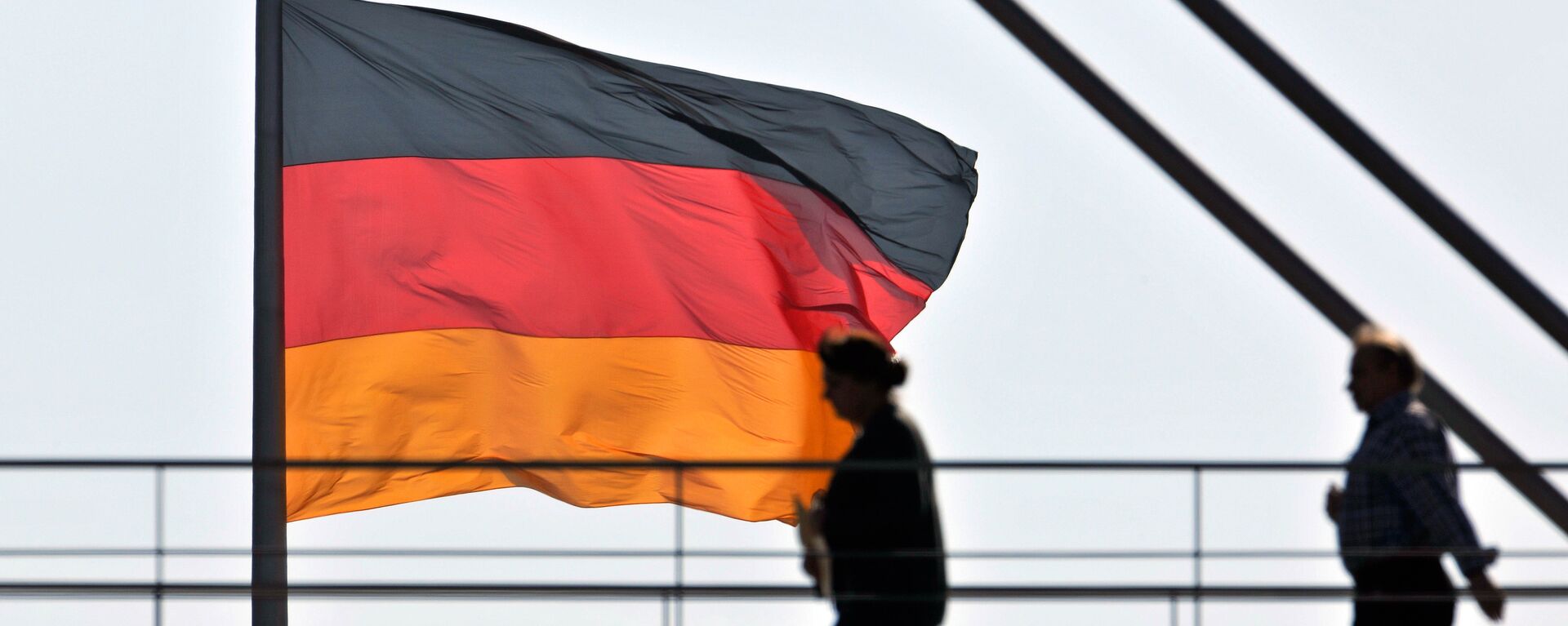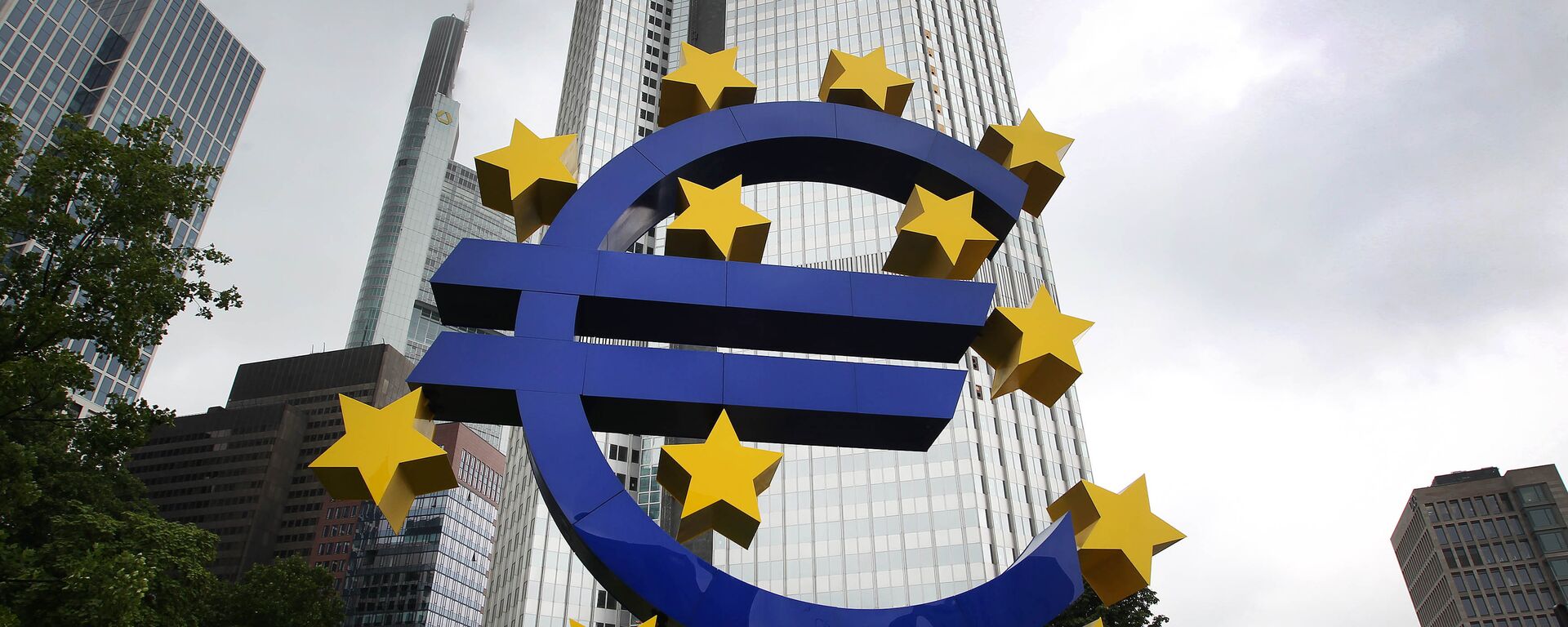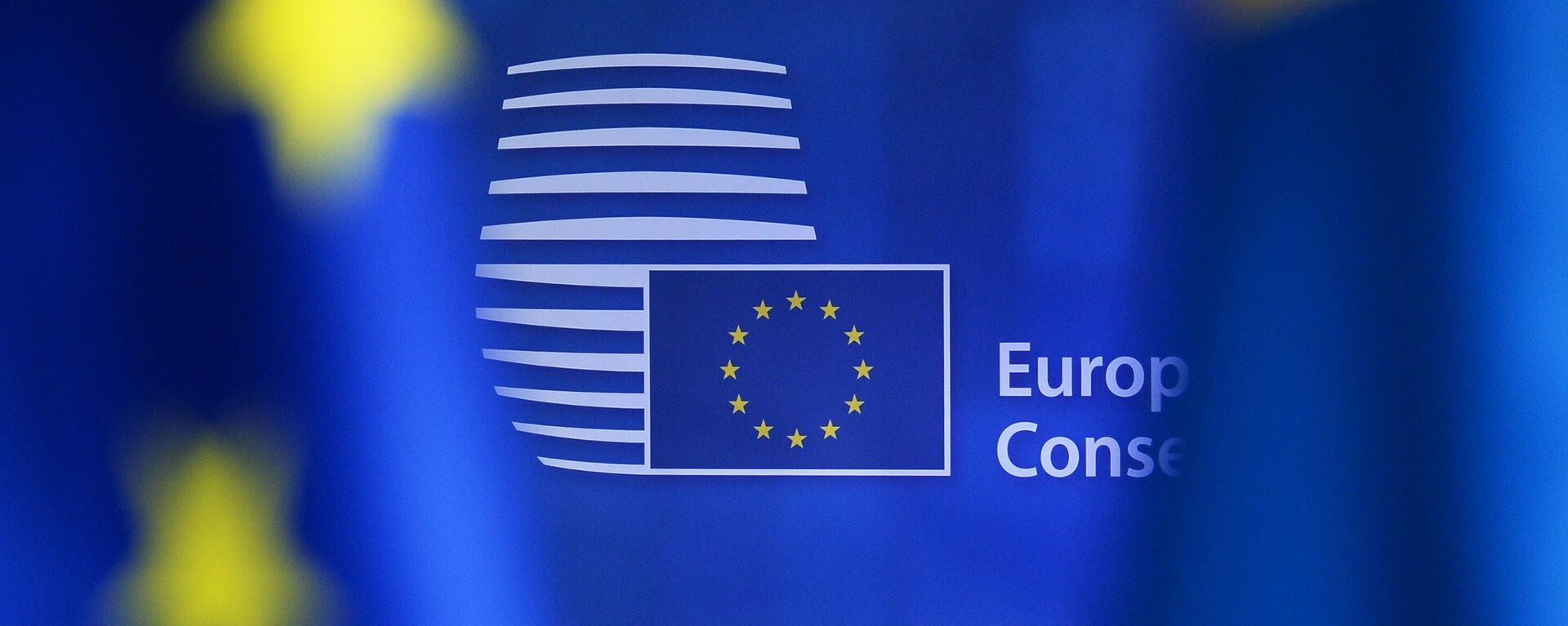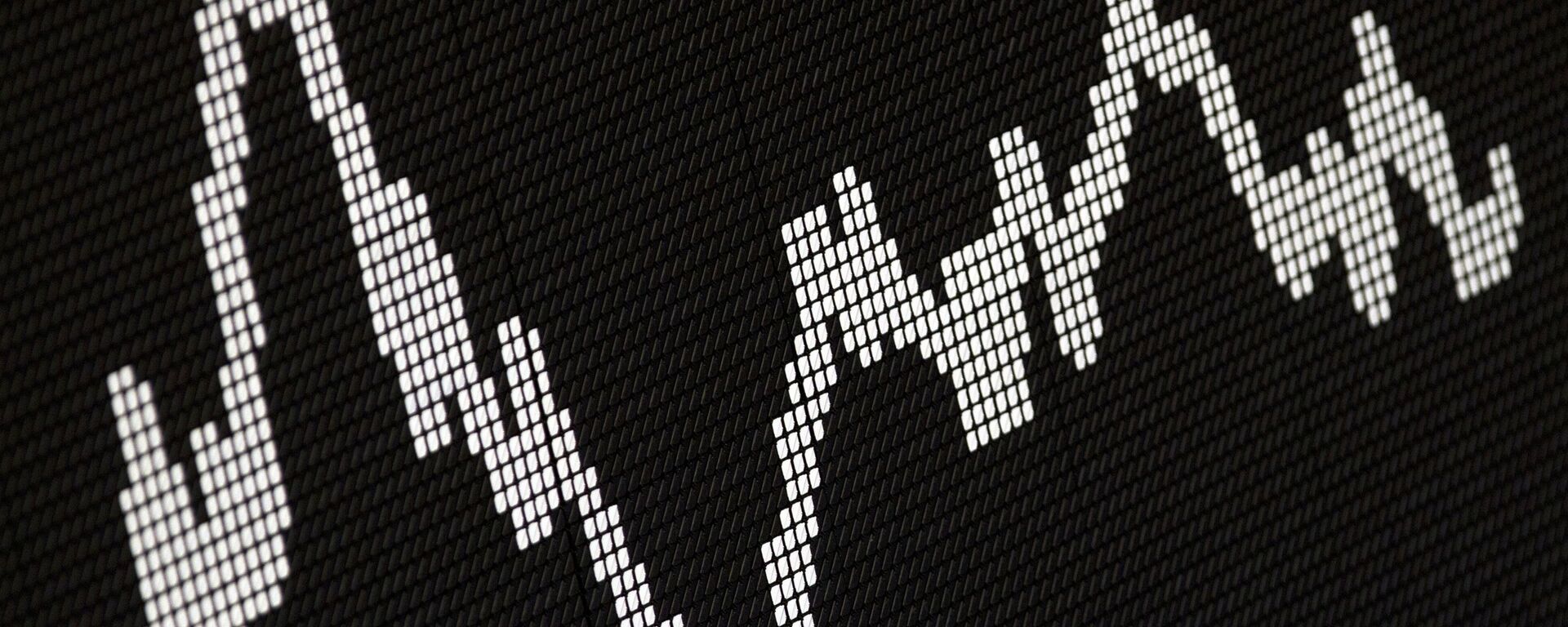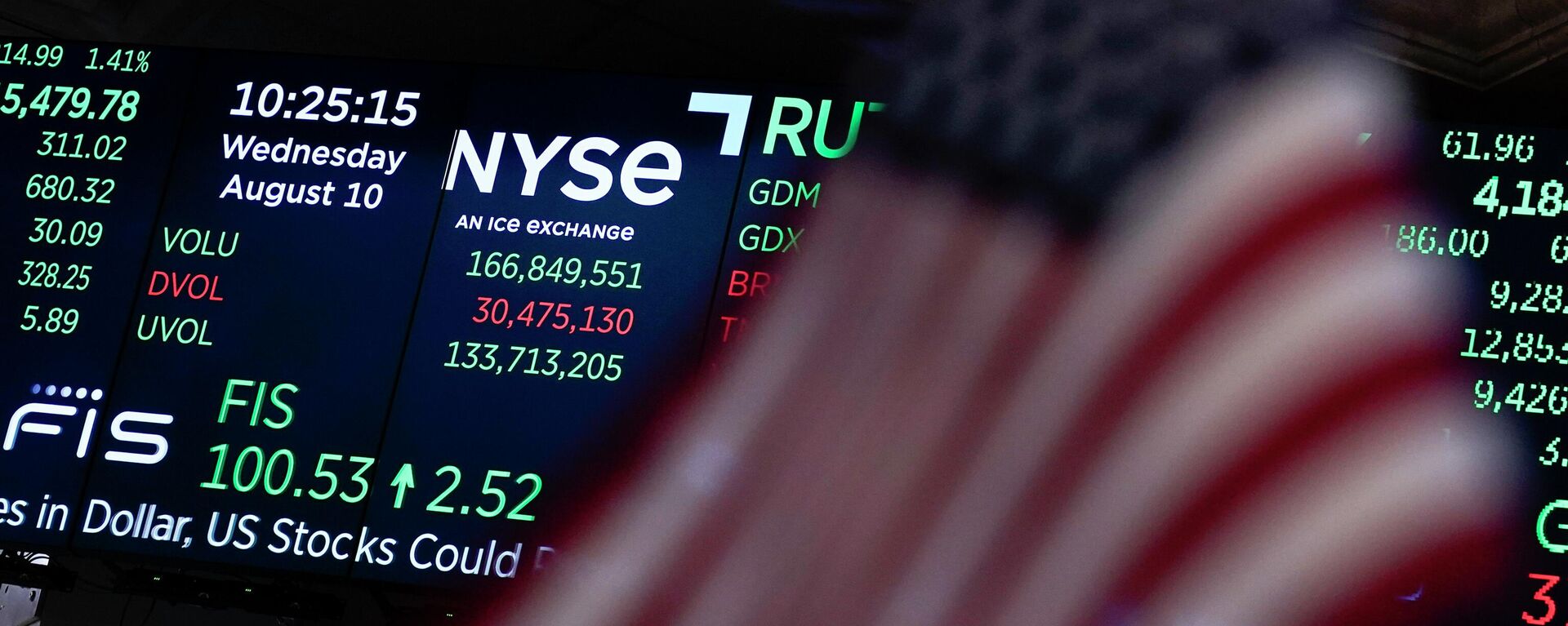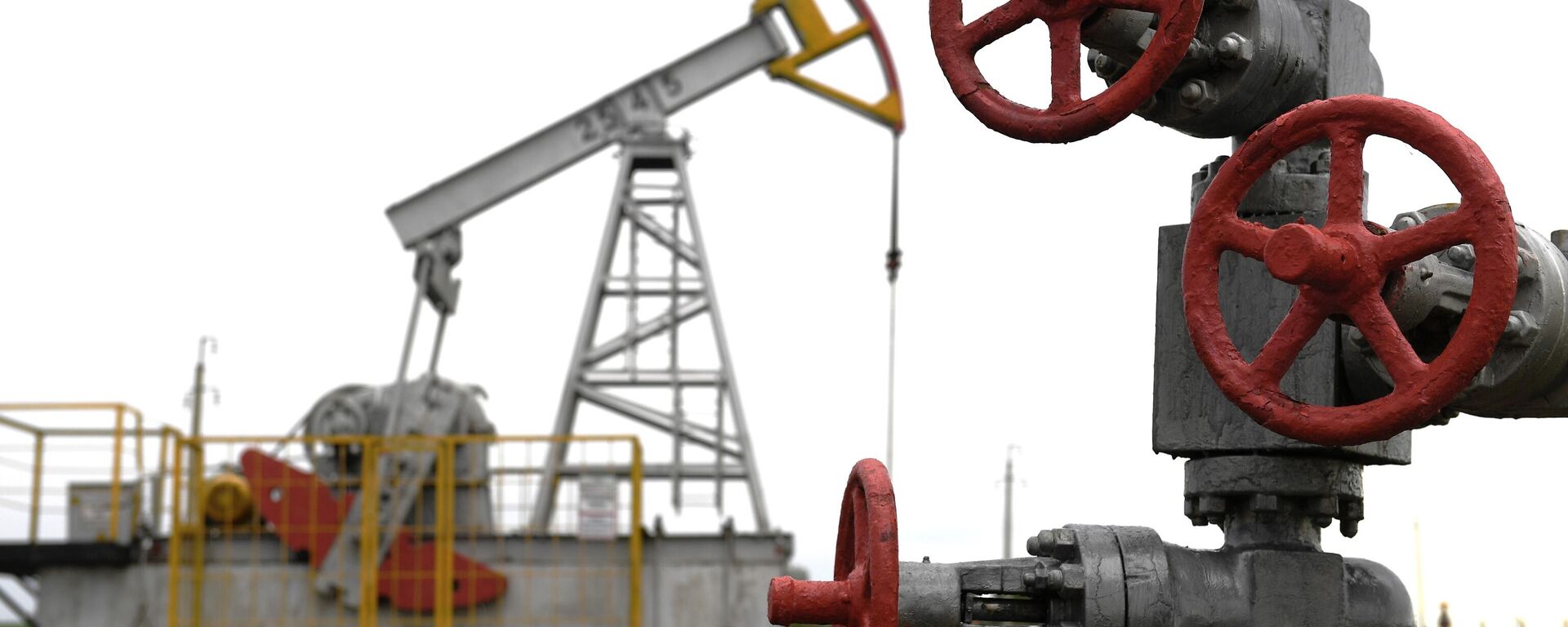Potemkin Village Economy: Why Next Global Recession Will Begin in Europe
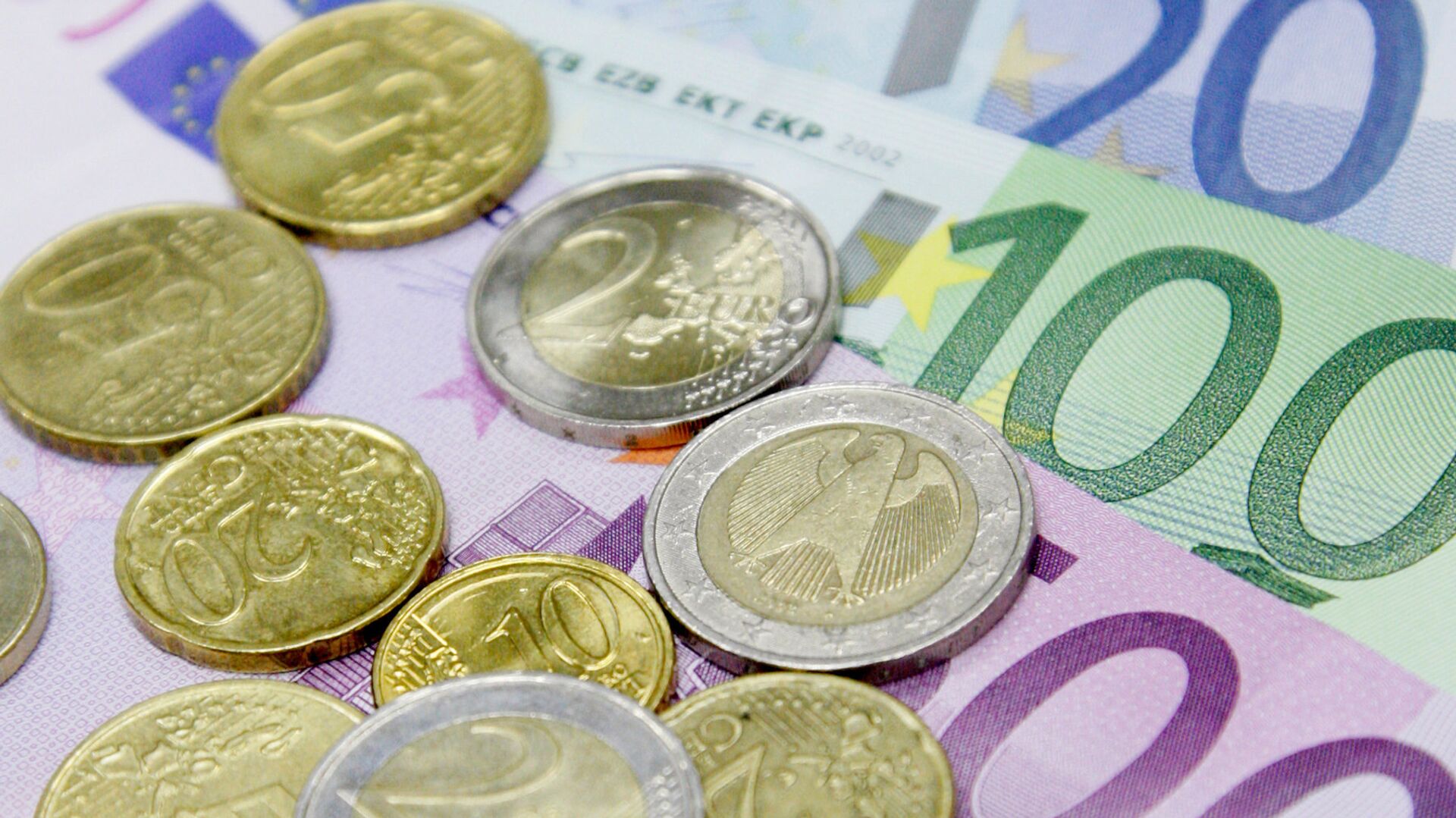
© Sputnik / Anton Denisov
/ Subscribe
An impending crisis may soon flood the Potemkin villages of the EU economy, Tom Luongo, a geopolitical and financial analyst, publisher of the newsletter Gold, Goats 'n Guns, told Sputnik's New Rules podcast.
The euro area's annual inflation rate fell to 5.5% in June from 6.1% in May; a year earlier the rate was 8.6%. However, it's too early to pop the champagne as higher inflation is about to make a comeback later this year in Europe, according to Tom Luongo, a geopolitical and financial analyst. What's more, recession has already begun to engulf the bloc, driven by flawed energy policy and the European Central Bank's (ECB) aggressive interest rate hikes.
"The economic block between a rock and a hard place is Europe," Luongo told Sputnik's New Rules podcast. "They're energy importers. They're not particularly good exporters of anything that really matters anymore. Germany is being de-industrialized like you wouldn't believe. Italy is being squeezed politically to the point where its vaunted industrial engine is being crushed. And then energy prices are set to rise."
Why ECB Rate Hikes are a Recipe for Disaster
ECB chief Christine Lagarde appears to be aware that the Eurozone is not out of the woods despite slowing inflation. Her recipe is to proceed with interest rate hikes in July and beyond, even though the ECB has already raised interest rates to their highest level in 22 years. However, according to Luongo, that won't help.
"They're the Potemkin village because they can't afford to continue raising interest rates at this moment in time because, well, the Bundesbank is effectively bankrupt," Luongo said. "The German auditor came out two weeks ago and said, 'Look, the Bundesbank has no equity left after it bought 3.5 trillion dollars' worth of its own debt and the rest of that in order to prop up the bond markets, in order to enforce negative bound interest rates. They're dealing with structural inflation that is not going away. And Lagarde has finally admitted it."
Some EU member states have already realized that interest rate hikes are a road to nowhere: late last month, Italian Prime Minister Giorgia Meloni subjected the ECB policy to criticism, saying the "cure" may be worse than "the disease." Meloni's concerns are justified, given that Italy's manufacturing shrank in June at the fastest pace in the past three years. S&P Global forecast that Italy's slowdown will only deepen as the ECB is not done with its hike spree.
Because it keeps raising interest rates, the Eurozone is now dealing with a stronger euro and a stronger pound than the bloc expected, Luongo noted, estimating that their fair value is now about 15% overvalued. However, a higher-valued currency makes a country's exports more expensive in foreign markets.
"What's that they're going to do to their export markets, which are not particularly strong in the first place?" the economist asked.
Rising energy prices is another curse for the EU. One should also bear in mind that the European economy has long been reliant on relatively cheap energy, the expert noted.
In the wake of the sweeping energy embargo on Russia, spearheaded by the US, and preceding "green energy" policies which targeted fossil fuels, energy prices went up 60% in 2022. In the first two quarters of 2023 Europe saw easing energy costs because of mild winter, healthy stocks, and regular LNG deliveries and, above all, lower consumption. Still, Luongo expects that oil and gas will soon rise again.
"Oil prices are starting to rise," the expert said. "Oil closed last week, amidst all of this turmoil, while bonds were getting bought and everything was going to be bought last week except the dollar, including commodities. Copper was 393 a pound. Brent crude closed above $80 for the first time in nine or ten weeks. West Texas Intermediate did the same thing. Natural gas prices in the US are rising. Since the Europeans have cut themselves off from cheap Russian gas and cheap Russian oil. They've got to buy it from the states, which they're doing at an extreme premium. And [US President Joe] Biden is going to have to stop burning the Strategic Petroleum Reserve (SPR) to subsidize Europe's energy needs, which is what he's been doing. That policy is going to act."
Higher energy costs could cause a spike in inflation. This is part of the reason why the expert thinks inflation is going to return later in the year and is going "to be exactly the same kind of inflation we had at the beginning of this process."
There will be a second wave of commodity cost push inflation, Luongo believes.
"You're going to see commodity prices rise because now after a way too long time of commodity prices not being high (…) And now everybody just has to look to Asia and their growing demand for commodities and, as far as for strategic commodities, I don't think that that's going to abate. And I don't think the United States is going to stop demanding those things. I don't think people are going to stop demanding food. I just don't think they're going to start supplementing food and energy. I've been on this planet 55 years and I haven't seen it yet. And in the history of economics, I haven't seen it yet. (…) And as credit prices come down, commodity prices are going to rise. Even if they rise 10% from where they are, even if oil only rises from $80 a barrel to $88 a barrel or $90, still [there will be] a 10 or 12% rise."
EU Inflation, Recession & Banking Collapse May Trigger New Global Economic Crisis
Over the past year, experts projected that a new global recession in the style of 2008 could be upon the world economy, again. And much of the rhetoric has focused on how this new bubble could come from the United States.
However, per Luongo, there's a greater chance that the next global recession, if it does take place, would emanate from Europe due to a commodity wave, just causing inflation all over the place, and the banking collapse. The first harbinger of the impending trouble was Switzerland's Credit Suisse bank collapsed in March 2023.
"Christine Lagarde is desperate to get the digital euro started by October, because she needs that, because she knows she's got a banking crisis on the horizon and she needs to do something drastic in order to invalidate all the debt that's out there that nobody can service anymore," Luongo said.
The expert believes that the Europeans put themselves in this position.
"They destroyed any chance that the euro could ever compete with the United States when they went to the negative bout, when they went to negative 0.6% for deposit rates and then sent more than $12 trillion worth of European sovereign debt into negative nominal yields. For years," Luongo underscored. "These negative interest rates were a policy in Europe for nearly a decade."
In early 2015, the ECB kicked off large-scale quantitative easing (QE) programs flooding the euro area economy with cheap money. For years interest rates had stayed near zero while between September 2019 and July 2022 these rates went negative. The rationale behind this was to fight critically low inflation. At the beginning of the COVID pandemic in March 2020 the Eurozone inflation rate fell even further prompting the bloc's member states to spend even more.
According to international observers, it appeared that the underlining rise of debt was not a concern for the ECB at the time. Eventually, in 2021 inflation started to soar and the ECB went to other extremes by aggressively tightening its monetary policy.
What's LIBOR and Why the US Fed Phased It Out
Apparently, the US Federal Reserve saw this crisis in the making and started the process of replacing the London Interbank Offered Rate (LIBOR) with the Secured Overnight Financing Rate (SOFR). LIBOR was phased out on June 30, 2023. According to Luongo, LIBOR gave the EU nothing short of economic control over the US.
"It's important to understand that the United States capital markets that we think we all know, they're all based on the needs of the indexed rate of London banks," explained Luongo. "Because they're the ones that were setting the overnight interest rate that all of the dollar-denominated debt was written against. So your credit card would be LIBOR plus six, or a car loan is going to be LIBOR plus two. Now, over the last five years, the SOFR, the Secured Overnight Financing Rate has been rolled out and is now officially in the law of the land because LIBOR died on June 30th of this year officially. The changeover from LIBOR to SOFR has been a five-year staged rollout by the Federal Reserve. Now, whatever the London banks want doesn't matter because SOFR, the overnight lending rate in the United States is set by in the actual repo markets by US banks and by traders here."
Despite being a long-established global benchmark standard, LIBOR was mired in the scandal of rate rigging. It turned out that major banks allegedly colluded to manipulate the LIBOR rates by artificially lowering them to keep them at their preferred levels. These irresponsible monetary policies did not add to the health of the Western-centered financial system.
"We're operating in a different regime than we have had for over 100 years. And LIBOR was the law of the land here in the United States for a hundred years. And now it's not. And this is a very, very important moment in time," said Luongo.
What's Behind the EU's Self-Inflicted Pain?
"I believe they may have done so for their own weird globalist agenda reasons. Klaus Schwab's Agenda 2030 and all the rest of it, the Build Back Better and all that stuff. But the reality is that things don't work in the real world like they work on paper in academia. This is one of the big criticisms that Austro-libertarians like myself have said about the Fed. And then the Fed gets everything wrong or that. Well, guess what? The ECB is just the old Fed under [Ben Shalom] Bernanke and [Janet] Yellen times ten. It is even more politicized, it's even more agenda driven and it's even more beholden to economic models that have zero applicability in the real world," Luongo concluded.
For more of Tom Luongo's exclusive analysis on the EU economy, check out the full episode of the New Rules podcast.

